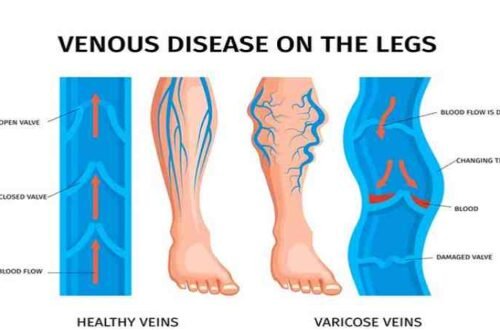Workers’ compensation is a vital safety net for employees who are injured on the job, ensuring that they receive the medical care and financial support they need while recovering. However, not all claims are approved smoothly. Denied workers’ compensation claims can be frustrating and stressful, leaving injured workers uncertain about their rights and future. In such cases, workers’ compensation lawyers, like those at workerscompensationlawyercalifornia.com/, can play a critical role in navigating the appeals process and securing the benefits their clients deserve.
This article explores how workers’ compensation lawyers handle denied claims and guides you through the essential steps of the appeals process.
Understanding Workers’ Compensation Denials
A workers’ compensation claim can be denied for several reasons, ranging from clerical errors to disputes over the legitimacy of the injury. Understanding why a claim was denied is the first step in mounting a successful appeal.
Common Reasons for Claim Denials
- Lack of Medical Evidence: If there isn’t sufficient medical documentation to support the claim, the insurance company may argue that the injury is not as severe as claimed or is unrelated to the workplace.
- Missed Deadlines: Workers’ compensation claims must be filed within a specific time frame. Missing a deadline for reporting the injury or filing the claim can lead to an automatic denial.
- Disputed Injury: The employer or insurer may argue that the injury did not occur at work or that it was pre-existing, leading to the rejection of the claim.
- Improper Paperwork: Simple mistakes on the claim forms, such as incorrect information or incomplete sections, can result in a denial.
- Fun Fact: Studies show that approximately 7-10% of workers’ compensation claims are initially denied, with many successfully overturned on appeal.
The Role of a Workers’ Compensation Lawyer
As detailed on the http://www.lacaccidentpros.org website, a workers’ compensation lawyer’s primary job is to advocate for injured workers, ensuring their clients receive the benefits they are entitled to under the law. If your claim is denied, a lawyer can help you appeal the decision and build a strong case.
Initial Consultation and Case Evaluation
The first step a workers’ compensation lawyer takes is reviewing the denial notice. They will carefully examine the reasons for the denial and evaluate your case. During this initial consultation, your lawyer will:
- Gather medical records and documentation related to the injury.
- Assess whether deadlines were missed or paperwork errors contributed to the denial.
- Investigate any disputes between you and your employer or insurance company regarding the injury.
This evaluation helps the lawyer determine the best course of action for moving forward with an appeal.
Preparing and Filing an Appeal
Once your lawyer understands the reason for the denial, they will begin the process of appealing the decision. This involves preparing a legal argument and gathering additional evidence to strengthen your claim. Some key steps in this phase include:
- Collecting Additional Medical Evidence: A workers’ compensation lawyer will often work with medical professionals to obtain detailed reports and expert opinions that can refute the reasons for denial.
- Witness Testimony: If necessary, your lawyer may gather statements from coworkers or witnesses who saw the accident happen, supporting your claim that the injury occurred at work.
- Filing the Appeal: Every state has a specific process and timeline for appealing a denied workers’ compensation claim. Your lawyer will file the necessary paperwork to start the appeal and ensure all deadlines are met.
- Pro Tip: In some states, you only have 30 days to file an appeal, so it’s crucial to act quickly if your claim is denied.
The Appeals Process: What to Expect
The workers’ compensation appeals process can vary by state, but it typically involves several stages. Your lawyer will guide you through each step, ensuring that your case is presented as effectively as possible.
Mediation or Settlement Negotiations
In many cases, the first step in the appeals process is mediation. This is an informal meeting between the injured worker, their lawyer, the employer, and the insurance company, facilitated by a neutral mediator. The goal is to negotiate a settlement that both parties can agree on without going to court.
Your lawyer will represent you during these negotiations, using the evidence they’ve gathered to argue for a fair settlement. If a settlement cannot be reached, the appeal will proceed to a formal hearing.
Administrative Hearing
If mediation is unsuccessful, the next step is usually an administrative hearing. This is a legal proceeding where your lawyer will present your case before an administrative law judge (ALJ). During the hearing, your lawyer will:
- Present medical records, witness testimony, and expert reports to support your claim.
- Cross-examine any witnesses presented by the employer or insurance company.
- Argue why the denial of your claim was unjustified and why you should receive workers’ compensation benefits.
After the hearing, the judge will review the evidence and issue a decision. If the judge rules in your favor, you will begin receiving the benefits you are entitled to. If the judge upholds the denial, you can appeal the decision further, often to a state-level workers’ compensation board.
Continuing the Appeal: Further Legal Action
In cases where the administrative hearing does not result in a favorable decision, a workers’ compensation lawyer can pursue further legal action. This might involve appealing to a higher court or negotiating a settlement with the insurance company.
Appeals to State Workers’ Compensation Boards
If the administrative law judge upholds the denial, the next step may involve appealing to a state-level workers’ compensation board. This process involves submitting legal briefs and additional evidence for review. The board will evaluate the case and issue a final ruling.
Civil Litigation
In rare cases, if all appeals are exhausted and the claim remains denied, your lawyer may suggest filing a civil lawsuit. This is typically a last resort and only applicable in specific circumstances, such as gross misconduct or bad faith on the part of the employer or insurance company.
- Fun Fact: Some states have laws that allow injured workers to receive compensation for emotional distress or punitive damages if the insurer acted in bad faith when denying the claim.
How a Workers’ Compensation Lawyer Increases Your Chances of Success
Hiring a workers’ compensation lawyer significantly increases your chances of successfully appealing a denied claim. Lawyers specializing in workers’ compensation understand the complex legal requirements and have experience navigating the appeals process. With their knowledge of medical documentation, procedural rules, and negotiation strategies, they can help you secure the compensation you need to cover medical bills, lost wages, and other expenses related to your injury.
Navigating a denied workers’ compensation claim can be a complex and frustrating experience. However, with the help of a skilled workers’ compensation lawyer, you have the best chance of successfully appealing the decision and securing the benefits you deserve. From collecting additional medical evidence to representing you during hearings, a workers’ compensation lawyer is your advocate, guiding you every step of the way. If your claim is denied, don’t lose hope – seek legal assistance and take action to protect your rights.





